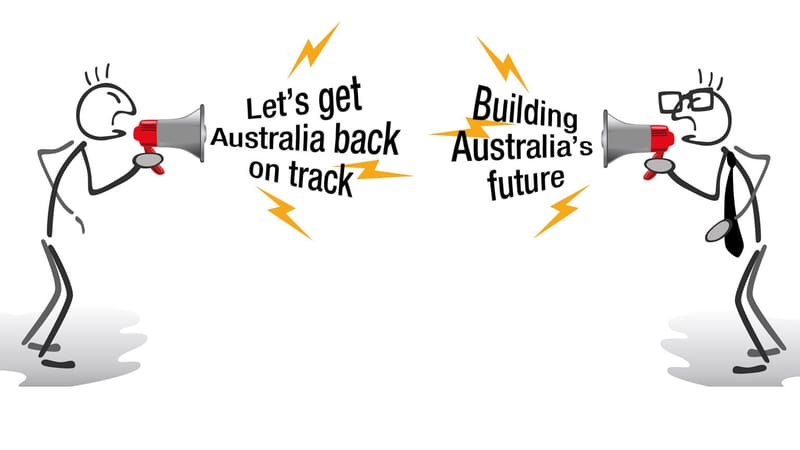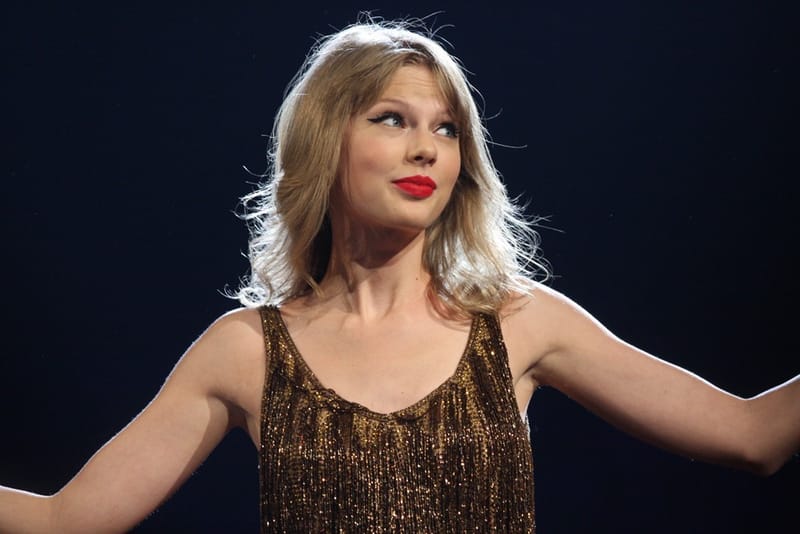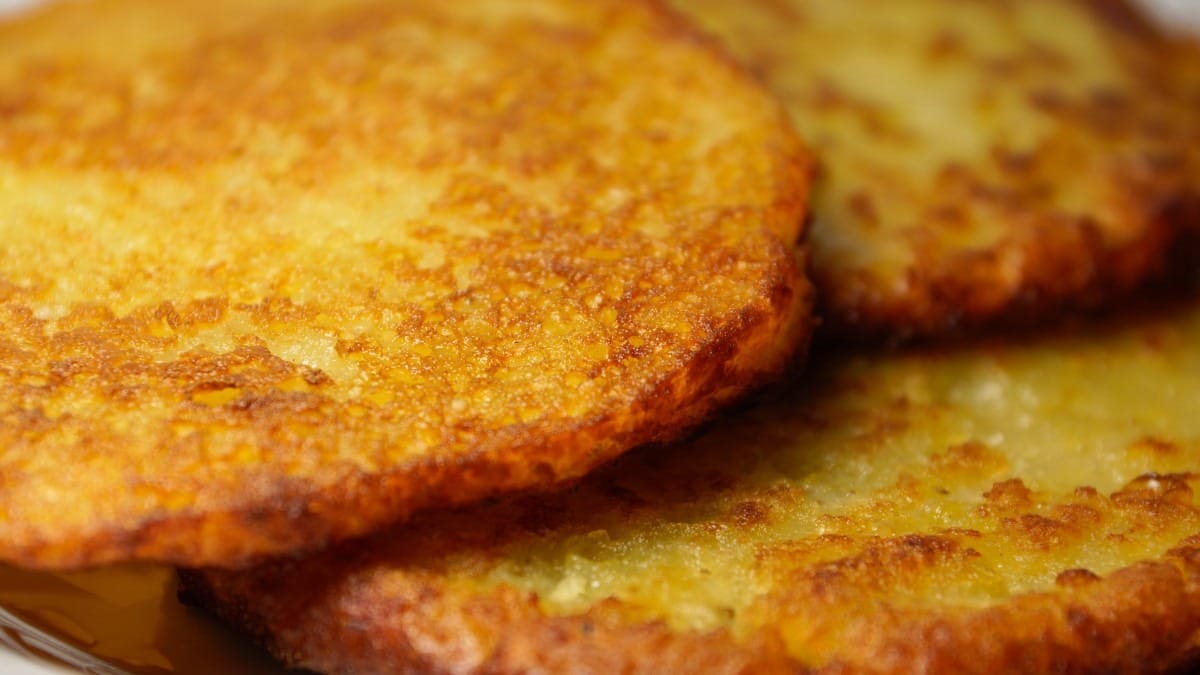
Many Aussies won’t pass up the chance to argue about “potato cakes”, “scallops” or “fritters”.
Spare a thought for the linguists. We just want everyone to get along and accept the beauty that is deep-fried potatoes – whatever you want to call them. We agree with Darryl Kerrigan: It’s not what you call them, it’s what you do with them.
But we get dragged into this debate a lot.
Look, I love potatoes as much as the next person. A few months ago, I went to the shop to buy what we Americans call “tater tots”. I got so excited by what I saw in the Coles freezer that I made a meme:
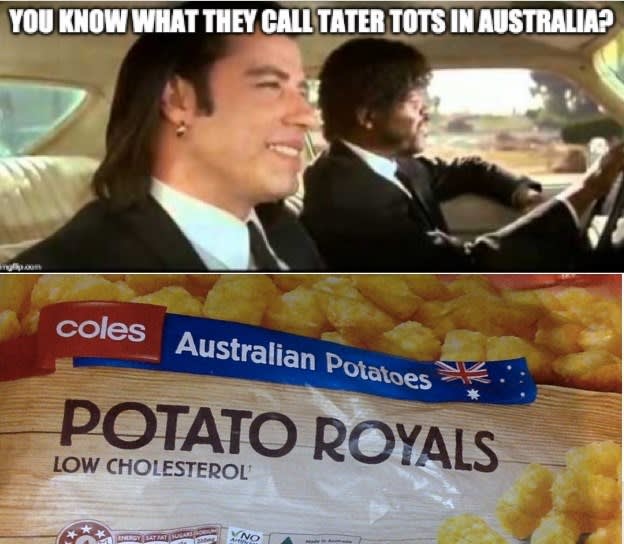
I’ve since learned this is a Coles brand, and the more common word in Australia is “potato gem”. My love of potato gems as a phrase (and product) was only amplified when the Australian National Dictionary got in touch with me to say “potato gem” might make it into the third edition of the dictionary!
So, you see where I’m coming from. I love potatoes. So, trust me – as an outsider – when I say from the bottom of my heart: Just let the fried potato debate go. This seppo’s holding an intervention.
It’s clear to me that Australian state lines are often artificial (well, outside of COVID times). Our state lines are more firmly drawn around one simple question, asked by the good people at the Linguistic Roadshow:
“What do you call a battered, deep-fried potato snack?”
You can see these true state lines set out by the Linguistic Roadshow.
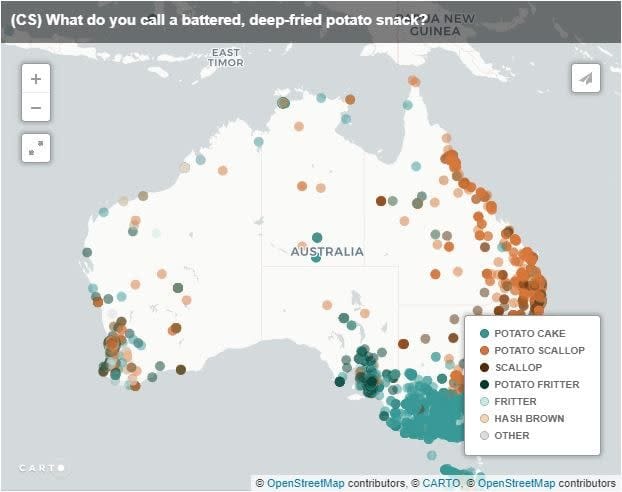
Most of the energy in this debate seems to be focused on the division between the “potato cake” (Victoria) and the “(potato) scallop” (NSW). In fact, from time to time, I feel bad for the so-called “Quiet Australians”, who seem to sit quietly munching on their “(potato) fritters” whilst saying stuff like “cah-stle” instead of “castle”.
The most powerful weapon in the fried potato war seems to be the “yeah-nah” chiacking strategy. (“Chiacking” – for those who’ve not come across the term – refers to the good-natured ribbing you Aussies like to give one another).
Here’s a great example of the Australian Electoral Commission dishing out a “yeah-nah” chiacking:
“Our team comes from both sides of the cake/scallop dividing line.
It's cakes, though.”— AEC ✏️ (@AusElectoralCom) March 11, 2022
The tweet begins with the “yeah” segment, a barley (“truce”) acknowledging the possibility that it’s reasonable to call this fried potato a “scallop”. This gets followed quickly by the “nah” segment where the AEC’s social media team goes berko (“berserk”) and outs themselves as gum-sucking Cabbage Patchers (more commonly known as Victorians).
Anyway, our research team isn’t going to get involved in this debate. Linguists try not to take sides, mostly. Our role is simply to describe language, and to be interested in people’s attitudes toward language.
Further, we recognise that people have mistaken assumptions about language – such as when someone from NSW thinks these are called potato scallops, or someone from South Australian thinks these are called potato fritters.
These fried potatoes are clearly potato cakes, so please stop arguing. But, then again, I would say that wouldn’t I? I live in Melbourne.
Go to our website to catch up on other discoveries on the history and evolution of Aussie slang, and to comment on this article. We’d love your feedback.


